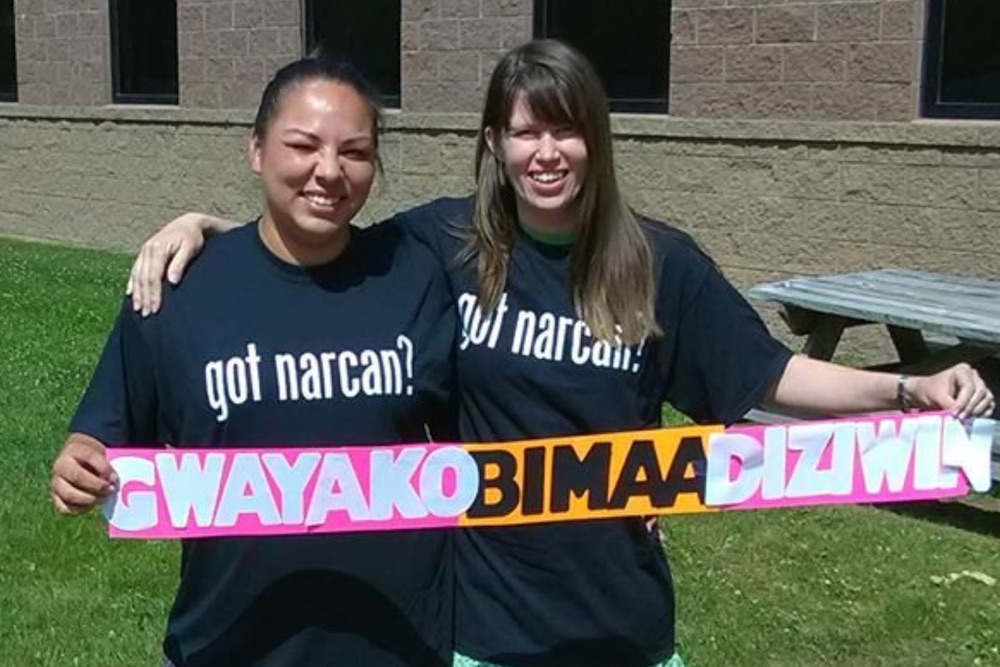
- Details
- By Elyse Wild
The Native Collective Research Effort to Enhance Wellness (N CREW) Program will provide $268 million over seven years to Tribes and tribal organizations to lead public health research to address overdose, substance use, and pain management.
Once driven by the overprescription of opioids, experts say the opioid crisis has morphed into an overdose crisis. The proliferation of fentanyl — a deadly synthetic opioid 100 times stronger than morphine — in non-opioid drugs, like methamphetamine and cocaine, is increasing overdoses among users of those drugs.
According to the latest data from the Centers for Disease Control, it’s estimated that 107,543 people died from drug overdoses in 2023, a slight decrease from 2022.
While the overdose crisis has touched every community in the U.S., Native American communities are the most affected, with overdose rates the highest among Alaska Native and American Indians. From 2021-2022, overdose rates for AI/AN increases 15%.
Advocates attribute the long-lasting effects of colonialism, the violent removal of tribes from their ancestral lands, generations of forced assimilation via federal Indian boarding schools, and broken treaty promises as leaving the Indian country with disproportionately high rates of depression, anxiety, suicidal ideation, and especially vulnerability to the opioid crisis.
Nora D. Volkow, M.D., director of NIH’s National Institute on Drug Abuse (NIDA), said in a press release that research conducted by Native communities is crucial for creating effective and culturally grounded solutions to reducing overdose deaths in Indian Country.
“Elevating the knowledge, expertise, and inherent strengths of Native people in research is crucial for creating sustainable solutions that can effectively promote public health and health equity,” Volkow said. “As we look for ways to best respond to the overdose crisis across the country, it is crucial to recognize that Native American communities have the best perspective for developing prevention and therapeutic interventions consistent with their traditions and needs. This program will facilitate research led by Native American communities, for Native American communities.”
According to NIH, the N Crew Program was developed in direct response to feedback from Tribes and Native communities during NIH Tribal Consultations in 2018 and 2022. During the consultations, tribal leaders
highlighted the need for research capacity building real-time data, and approaches that rely on Indigenous Knowledge and community strengths to meet the needs of Native people.
“Native American communities have been treating pain in their communities for centuries, and this program will uplift that knowledge to support research that is built around cultural strengths and priorities,” said Walter Koroshetz, M.D., director of NIH’s National Institute of Neurological Disorders and Stroke (NINDS). “These projects will further our collective understanding of key programs and initiatives that can effectively improve chronic pain management for Native Americans and other communities.”
N Crew will take place in two phases; the first, occurring from 2024-2026, will support Tribes and Native organizations with $25 million to plan, develop, and pilot community-driven research and data improvement projects to address substance use and pain. NIH will also create a Native Research Resource Network to provide N CREW participants with comprehensive training, resources, and real-time support.
As of Monday, August 19, recipients of the first phase include the Absentee Shawnee Tribe of Oklahoma and the Yakama Nation.
The second phase of the program, anticipated to begin in fall 2026, will build on the work conducted in phase one to further capacity-building efforts. NIH has not yet announced which Tribes and organizations will receive funding for phase one.
More Stories Like This
New Mexico Will Investigate Forced Sterilization of Native American WomenUSDA Expands Aid for Lost Farming Revenue Due to 2025 Policies
Two Feathers Native American Family Services Wins 2026 Irvine Leadership Award
Bill Would Give Federal Marshals Authority to Help Tribes Find Missing Children
Indian Health Service to Phase Out Mercury-Containing Dental Amalgam by 2027


